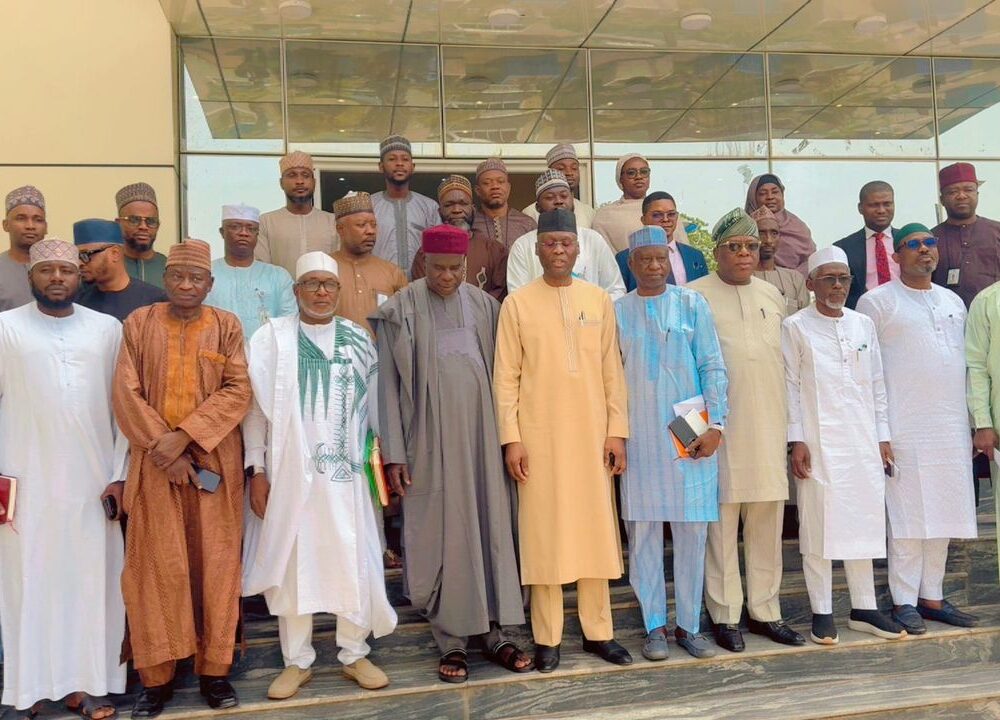In the name of Allah, the Most Beneficent, the Most Merciful
All praise is due to Allah, the Lord of all creation, may Allah extol the mention of our noble Prophet Muhammad in the highest company of Angels, bless him and give him peace and security―and his family, his Companions and all those who follow him correctly and sincerely until the establishment of the Hour.
Dear brothers and sisters! Some people may think that apologising for our mistakes is a weakness. However, it is in reality strength, courage, confidence, purity, and self-righteousness. Besides, apology eliminates hatred and envy and releases the soul of mistrust and doubt. And only great people dare to apologise, and only good people can maintain and foster it because this trait emerges from a pure heart, which does not cheat or hide evil. Whoever knew his mistake and then apologised to others for it, people will look at him with admiration. Admitting the mistakes and returning to the right path is a virtue – what a great person when you hasten in good deeds and return to the right track.
While making mistakes is human nature yet, an apology can recover such errors, as the Messenger of Allah (Peace be upon him) said.
It is also said:
“The water of confession washes out impurities of the sin.”
If you ponder of the blessed group of Prophets and Messengers of Allah, the noble and the best of all people, you will find that they have never been prevented by arrogance to apologise whenever required.
Dear brothers and sisters! Mankind is created with a body and a soul. The body was created from dust while the soul is breathed into that body by Allah as the Qur’an relates. Human creation is different from creation of angels or Jinn. So human obviously is not an angel, immune from making mistake. By contrast, he is subject to committing mistakes as the Qur’an and the Sunnah acknowledge that. The Qur’an says:
“…And Mankind was created weak.”
The Prophet (Peace be upon him] also said:
“Every son of Adam makes a mistake and the best of those who commit mistakes are the ones who seek forgiveness and make repentance.”
This is a proof that no one is perfect.
Dear brothers and sisters! Making apology is a concept which exists in Islam. It exists in Ibadah [worship] when we make a mistake and in dealings. Islam gives us forms of making apology to correct our mistakes. In prayer for instance we make two prostrations, when we make a mistake. In Hajj, we make a sacrifice when we commit mistakes. The Qur’an says:
“O you who have believed, do not kill game while you are in the state of Ihram. And whoever of you kills it intentionally – the penalty is an equivalent from sacrificial animals to what he killed, as judged by two just men among you as an offering [to Allah] delivered to the Ka‘abah, or an expiation: the feeding of needy people or the equivalent of that in fasting, that he may taste the consequence of his deed. Allah has pardoned what is past; but whoever returns [to violation], then Allah will take retribution from him…” [Qur’an, 5: 95]
Another form of apology is blood-money which should be paid by the person who killed someone else by mistake. The Qur’an says:
“And never is it for a believer to kill a believer except by mistake. And whoever kills a believer by mistake – then the freeing of a believing slave and a compensation payment presented to the deceased’s family [is required] unless they give [up their right as] charity. …” [Qur’an, 4: 92]
Dear brothers and sisters! Wallahi, there are no humans better than Prophets or Messengers of Allah, for they occupy the highest status and position. However, the Qur’an cites their apologies to Allah on many occasions. Adam for instance, apologised to Allah when he disobeyed Him. The Qur’an says:
“And We said, ‘O Adam, dwell, you and your wife in Paradise, and eat therefrom in [ease and] abundance from wherever you will. But do not approach this tree, lest you be among the wrongdoers.’ But Satan caused them to slip out of it and removed them from that [condition] in which they had been. And We said, ‘Go down, [all of you], as enemies to one another, and you will have upon the earth a place of settlement and provision for a time.” [Qur’an, 2:35-36]
When they remembered their mistake, they apologised saying:
“Our Lord, we have wronged ourselves, and if You do not forgive us and have mercy upon us, we will surely be among the losers.” [Qur’an, 7: 24]
So Allah accepted his repentance as the Qur’an relates:
“Then Adam received from his Lord [some] words, and He accepted his repentance. Indeed, it is He who is the Accepting of repentance, the Merciful.” [Qur’an, 2: 37]
Another example is when Prophet Musa apologised for Khidr as the Qur’an relates in Surah al-Kahf when he the former was impatient. The Qur’an says:
“And they found a servant from among Our servants to whom we had given mercy from us and had taught him from Us a [certain] knowledge.’ Musa said to him, ‘May I follow you on [the condition] that you teach me from what you have been taught of sound judgment?” [Qur’an, 18:65-66]
What happened in the end?
[Musa] said:
“Do not blame me for what I forgot and do not cover me in my matter with difficulty.” [Qur’an, 18:73]
Dear brothers and sisters! The Qur’an also tells us about the situation between Prophet Muhammad (Peace be upon him) and the blind man who came to him seeking knowledge and asking questions. The Prophet (Peace be upon him) did not pay much attention to him because he was arguing with the people of Quraish and conveying the message of Islam to them. The Qur’an relates that:
“The Prophet frowned and turned away, Because there came to him the blind man, [interrupting]. But what would make you perceive, [O Muhammad], that perhaps he might be purified. Or be reminded and the remembrance would benefit him? As for he who thinks himself without need, To him you give attention. And not upon you [is any blame] if he will not be purified. But as for he who came to you striving [for knowledge], While he fears [Allah], From him you are distracted.” [Qur’an, 80:1-10]
When these verses were revealed, the Prophet apologised to Abdullahi Ibn Umm Maktum and whenever he met him, he used to say to him, welcome to whom Allah blamed me for ignoring.
Dear brothers and sisters! For a Muslim to acknowledge and realise his mistake and apologise is a good act and a noble deed for which the person will get great reward and gain the pleasure of Allah. Surely Allah is pleased with the apology and repentance of the person who acknowledges his mistakes and his sins. The Prophet (Peace be upon him) says:
“Verily, Allah is more pleased with the repentance of His servants than a person who has his camel in a waterless desert carrying his provision of food and drink and it is lost. He, having lost all hopes (to get that back), lies down in shade and is disappointed about his camel; when all of a sudden he finds that camel standing before him. He takes hold of its reins and then out of boundless joy blurts out: ‘O Allah, You are my servant and I am
Your Lord’. He commits this mistake out of extreme joy.” [Muslim]
And among the noble consequences of making an apology is to end disputes and quarrels among people. Shaitan (Satan) seizes the opportunity through the mistakes of those who dispute and his whispers prevent them making an apology to each other. The Qur’an says:
“And not equal are the good deed and the bad. Repel [evil] by that [deed] which is better; and thereupon the one whom between you and him is enmity [will become] as though he was a devoted friend. But none is granted it except those who are patient, and none is granted it except one having a great portion [of good]. And if there
comes to you from Shaitan (Satan) an evil suggestion, then seek refuge in Allah. Indeed, He is the Hearing, the Knowing.” [Qur’an, 41:34]
Dear brothers and sisters! There are many obstacles that prevent a person from apologisng to others. These include:
1. Ignorance, which is regarded as a dangerous disease. The ignorant person does not know the correct teachings of Islam which urge Muslims to confess their mistake toward each other and to apologise for doing it.
2. Pride and arrogance, which are disliked in Islam, is another reason for not making apology. Such person who has this pride denies the rights of others who are harmed by his mistake as he feels he is superior to them or better than them as Iblis (Shaitan) did when he refused to prostrate for Adam.
Dear brothers and sisters! We urgently need to understand the excellence of making an apology when we make mistakes or commit a sin. Sorry is just a word, but it has a magic impact on the human self for it softens the hard heart, removes the mistake, and eradicates the dispute which might lead to fighting or committing a crime.
We need to understand this noble behaviour toward others, we need it in our homes, with our children, our wife, our neighbours, our friends, with our relatives, with non-Muslims as it surely solve various kinds of problems. The other side should Islamicly accept this apology.
Finally we ask Allah to guide us all, ameen.
All praise is due to Allah, Lord of the worlds. May the peace, blessings and salutations of Allah be upon our noble Messenger, Muhammad, and upon his family, his Companions and his true followers.
Murtadha Muhammad Gusau is the Chief Imam of: Nagazi-Uvete Jumu’ah Mosque; and Late Alhaji Abdur-Rahman Okene Mosque, Okene, Kogi State, Nigeria. He can be reached via: gusauimam@gmail.com; or +2348038289761.




